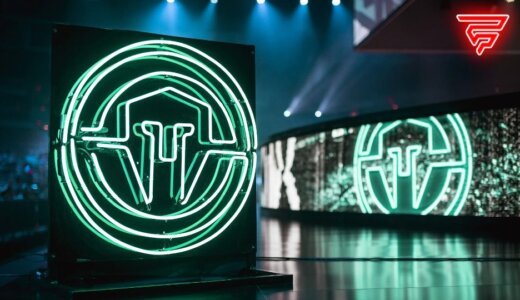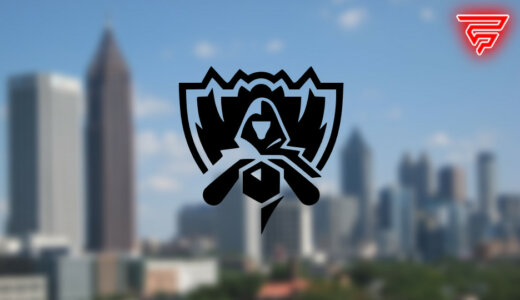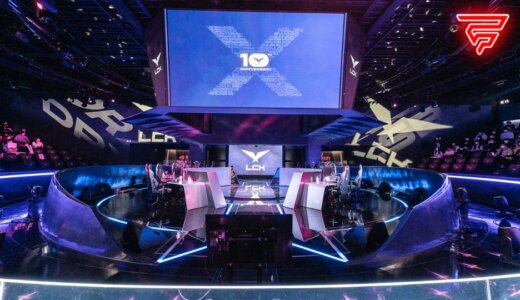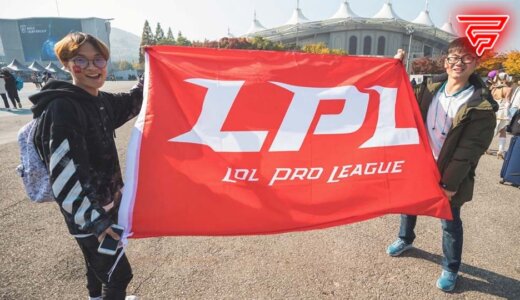In Clash in Season 14, the team you build can really make or break your game. It’s all about getting the right mix of champions and players together.
This isn’t just any match; it’s a chance to dive deep into strategies and teamwork. Knowing how to build a team for Clash can turn the whole experience from good to unforgettable. Plus, it boosts your shot at winning big.
Every choice counts, from picking players to selecting champions, setting you up for some epic gameplay. So, let’s get into how putting together the perfect team can ramp up your gaming fun and bring those victories home.
Understanding Clash and Its Significance
Clash is a highly competitive game mode in League of Legends where teams engage in fierce battles to determine the ultimate winner. It requires a combination of strategy, skill, and teamwork to succeed.
In this season 14, knowing how to build the right team for Clash is essential. Let’s take a closer look at what makes Clash so unique and exciting.
What Is Clash?
Clash is essentially a competitive arena within League of Legends, transforming the game into a tournament-style challenge that invites you and your team to shine.
Imagine you and four of your pals grouping up, selecting your best champions, and entering a battle arena structured much like professional play. This mode elevates the usual game experience to something more exhilarating, offering the intensity and excitement of a live esports event from the comfort of your home.
Starting from the beginning of Clash week, you have the opportunity to assemble your squad. The actual competition unfolds over the weekend, with your team diving into an 8-team bracket setup, either on Saturday, Sunday, or both.
Triumph in all three matches, and you’re rewarded not just with glory but also tangible in-game prizes that get better the further you advance. Should you face an early defeat, consolation matches offer a chance to still come out ahead in terms of rewards.
When you commit to a Clash bracket, it is only for one day at a time. This means that if things don’t go as planned, you can have a rematch or adjust your strategy on the following day.
This setup ensures that every Clash weekend is filled with strategy, camaraderie, and the pursuit of victory, making it similar to the professional League of Legends scene, but accessible to all players.
Teamwork and Strategy
Season 14 has amped up the importance of teamwork and strategy. Your success hinges on how well you can work together and execute your game plan. It’s not just about being good at the game but how you play as a team.
Choosing the right roles, understanding each other’s strengths, and planning your moves can turn the tide of battle. This season, putting thought into how to build a team for Clash can lead you to victory, making every match an exciting challenge.
2024 Clash Event Calendar
Getting a team of five together for a Clash can be challenging. However, with the calendar provided, you’re all set for some forward planning.
Clash Events and Their Timelines
- Noxus Cup | Patch 14.2: Begins team formation on January 22, with tournament play on January 27-28 (Ended).
- Shurima Cup | Patch 14.4: Teams will start gathering on February 19, with the main event on February 24-25 (Ended).
- ARAM Cup 1 | Patch 14.6: Team setup kicks off on March 18, leading to action on March 23-24.
- Piltover Cup | Patch 14.7: Teams can start forming by April 8, with the competition running April 13-14.
- MSI Clash | Patch 14.9: Prep begins April 29, with tournament days on May 4-5.
- ARAM Cup 2 | Patch 14.12: Formation starts June 10, with games on June 15-16.
- Demacia Cup | Patch 14.14: Team building from July 15, with clashes on July 20-21.
- Shadow Isle Cup | Patch 14.15: Assemble your team starting August 5, with the tournament on August 10-11.
- ARAM Cup 3 | Patch 14.17: Get your team ready by August 26, with matches on August 31-September 1.
- Zaun Cup | Patch 14.22: Team formation begins November 11, with the competition on November 16-17.
- ARAM Cup 4 | Patch 14.24: Start organizing your team by December 9, with the final event of the year on December 14-15.
Keep in mind that dates may shift, so always confirm the latest schedule with the game client.
Participation Requirements
If you want to participate in Clash, there are a few things you need to check first:
- Level Up: Your account needs to be at least level 30. This ensures you’ve got enough experience under your belt.
- Ranked Ready: Having completed your placements in a Summoner’s Rift ranked queue either this year or last shows that you’re ready for competition.
- SMS Verification: This step is crucial for proving your account’s authenticity and helps keep the game fair.
These steps are your ticket into the Clash world, setting the stage for you and your team to compete at your best.
How to Build a Team for Clash: A Step-by-Step Guide
Got that Worlds clash win and trophy with these amazing people this weekend @Youkigg @ChloieDay ❤️ Go team!#League_of_Legends #league #leagueoflegends #clash #win #victory #Worlds2021 #worlds #support #game #gaming #gamer #gamergirl #trophy #teamwork #teamworkmakesthedreamwork pic.twitter.com/zxed0ytgao
— Kiba (@k1bakun) October 18, 2021
Building a winning team for Clash requires more than just gathering your gaming buddies. It’s about strategy, understanding each player, and making smart choices, from champion selection to in-game tactics.
Let’s break down how to build a team for Clash, ensuring you’re ready to take on any challenge.
1. Assessing Player Strengths and Roles
Every player has their unique strengths and preferred roles. Identifying these is crucial for forming a strong team. Some might excel as aggressive junglers, while others shine in the mid-lane with their strategic plays.
Discussing and understanding each team member’s best roles and characters ensures that everyone can contribute to their fullest potential. Assigning roles based on proficiency not only boosts confidence but also enhances team performance.
2. Strategic Champion Selection
A versatile champion pool is essential to a flexible game plan. Encourage team members to be comfortable with multiple champions within their roles.
This diversity allows for adapting to various game scenarios and opponents. While comfort picks are important, balancing them with the current meta can give your team an edge.
Champions that are strong in the season can often turn the tide of battle, making it essential to blend personal preference with strategic advantage.
3. Synergy and Composition Strategies
The right team composition can make or break a game. Focus on creating a lineup that complements each other’s abilities. Whether it’s an engage-heavy team that excels in initiating fights or a poke comp that wears down opponents from afar, synergy is crucial.
Consider compositions that enable split-push strategies or those that capitalize on crowd control for team fights.
Effective champion synergies can set up game-winning plays, such as pairing an area-of-effect mage with a lockdown support. Discuss various strategies and practice them to find what best suits your team’s style.
4. Countering and Flexibility
Adaptability is a significant part of Clash. Being able to counter your opponent’s picks in champion select can give you an early advantage.
Encourage your team to learn about counter-picks and to have backup champions ready in case of bans. Flexibility also means being prepared to switch up strategies mid-game.
If your initial plan isn’t working, having a plan B (or even C) can help turn things around. This flexibility can keep opponents guessing and give your team the upper hand.
Building your team for Clash isn’t just about gathering the strongest players but about creating a cohesive unit that can adapt, strategize, and overcome any challenge together.
Focusing on strengths, strategic picks, team synergy, and adaptability will help your team claim victory in Clash.
Effective Communication and Practice
Success in Clash isn’t just about how well you play individually but also how well you play as a team. This is where good communication and regular practice come into play, setting the foundation for a winning strategy.
The Role of Communication in Team Success
Clear and continuous communication is the backbone of any successful team. It helps make quick decisions, coordinate attacks, and support each other throughout the game.
Simple call-outs, updates on enemy movements, or even quick strategizing can drastically improve your team’s performance. Encouraging an environment where everyone feels comfortable speaking up can be a game-changer.
Tips on Organizing Practice Sessions and Scrimmages
Organizing effective practice sessions is crucial in building teamwork and refining strategies. Here’s how to make the most out of your practice times:
- Schedule regular practice sessions: Decide on a regular time that works for everyone to practice. Consistency is key.
- Set goals: Each practice session should have specific objectives. Whether it’s trying out new team comps, focusing on certain phases of the game, or practicing specific roles, having a goal in mind focuses your practice.
- Review and adjust: After practice matches, take time to discuss what went well and what didn’t. This is a great time to adjust strategies and learn from mistakes.
- Scrimmage with purpose: Arrange scrimmages against other teams. This exposes you to new strategies and helps simulate a real Clash environment. Treat these as learning opportunities, regardless of the outcome.
Scouting and Analyzing Opponents
Understanding your opponents is as important as knowing your own team. The scouting feature in Clash is a powerful tool that can give you insights into who you’re up against. Here’s how to leverage it effectively.
Using the Scouting Feature
Before your match begins, use the scouting feature to review your opponents’ profiles. Look at their most-played champions, win rates, and recent game performances.
This information can reveal their preferred playing style and potential strategies. Pay attention to any patterns, such as whether they favor early aggression or late-game scaling champions.
Analyzing Opponent Tendencies
After gathering data, discuss with your team how you can adapt your strategy to counter your opponent’s strengths and exploit their weaknesses.
For instance, if the enemy team often picks champions with a strong team fight potential, consider selecting champions that excel in splitting the enemy’s focus or can disengage effectively.
You create a flexible and responsive game plan by analyzing your opponents and adjusting your approach. This adaptability is key in Clash, where each match can vary widely based on the teams you face.
Remember, the goal of scouting isn’t just to predict what your opponents will do but to prepare your team to respond effectively. This approach is crucial in building a team for Clash, ensuring you’re ready not just for your game but for any team you might come up against.
Post-game Analysis and Improvement
After the dust settles and the game ends, looking back at how everything unfolded is crucial. This isn’t just about winning or losing; it’s a golden opportunity to grow stronger as a team.
Reflecting on Match Outcomes
Reviewing match outcomes with an eye for learning can set you up for better performances in future clashes.
Discuss what strategies worked, what didn’t, and why certain plays led to specific outcomes. This reflection helps in identifying both strengths to build upon and weaknesses to address in practice.
Constructive Feedback and Morale Maintenance
Giving and receiving constructive feedback is essential for improvement. Focus on specific actions and suggest alternatives, avoiding personal criticism to keep the atmosphere positive.
Maintaining high morale, even after a loss, is vital. Celebrate the good plays and commit to working on the areas that need improvement together.
Overall, learning from each game, whether a win or a loss, is a step forward in building a team for Clash. It’s about evolving together, supporting each other, and coming back stronger for the next challenge.
Conclusion
Building the perfect team for Clash isn’t just about gathering top players. It’s about strategy, communication, and learning from each match.
Every step strengthens your team, from choosing the right mix of champions to giving each other supportive feedback.
Remember, success in Clash comes from understanding your teammates, adapting to challenges, and always looking for ways to improve. So, apply what you’ve learned in your next game and see how far you can go.










